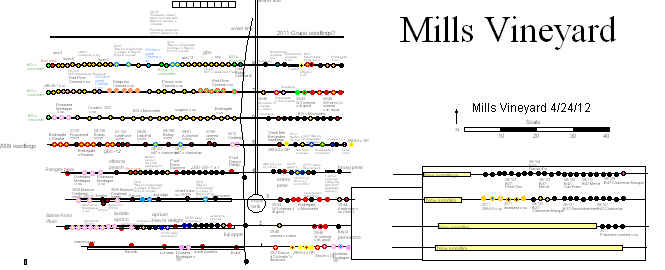The No Spray Vineyard
'Viticulture in a perilous state right now, like a house with termites in the beams,' says Pugibet. 'There isn't a chemical solution to it, and organic farming isn't the answer, because metals like copper will build up in the soil over time, and have a damaging effect on the aromatics of white wine particularly. I worry that if things carry on as they are, in 15 years winemakers will be faced with a situation where certain molecules will be banned outright and they will be left with no treatments against vine disease.'Without pointing it out directly, the article contrasts 'corporate science' and terroir. Without grass roots breeding programs like the one described in the article, terroir is waning.
Hat tip: John Barnett
published in Decanter China





